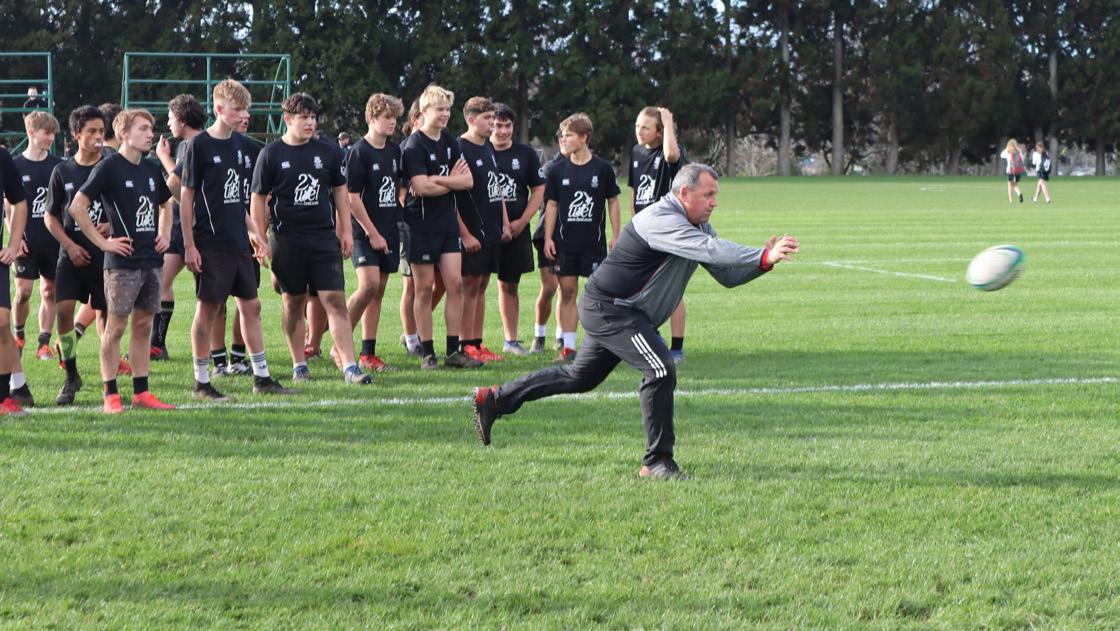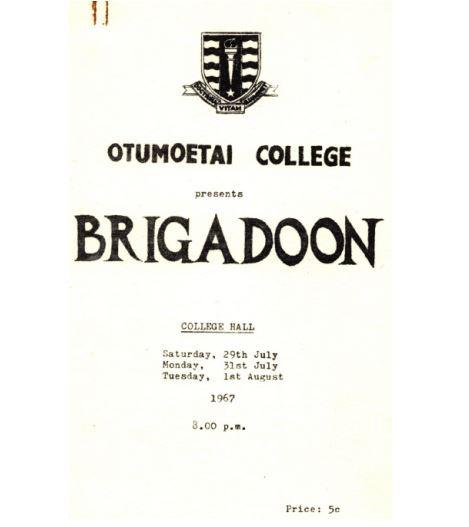
2 minute read
An Evening with Ian Foster
a Rugby Fundraiser
On Thursday 23rd of July, many of Otumoetai College’s top athletes had the opportunity to attend a talk by All Blacks coach, Ian Foster. He discussed sport and leadership, concluding with the First XV rugby team receiving a coaching session from Foster himself. His talk outlined what it takes to be a successful sportsperson, coach and leader.
One of the first things that Ian Foster discussed was his leadership style and his values as a leader. He described himself as a ‘collaborator’ who believes in the power of the team as a whole. ‘My role is to create an environment where they feel free to come in and talk, share ideas,’ he told us. His shared approach to leadership demonstrates how he values honest conversation, putting the team
first, acknowledging individual and collective needs, and applying these principles to everyone involved. ‘It takes learning to figure out the right questions and then shut up,’ he said, ‘I think this world’s got too many talkers and not enough listeners’. He also mentioned being inspired by Richie McCaw’s leadership skills, recounting how he allowed himself to be taught

by younger players in order to learn the skills for a position other than his own.
The role of recovery in athletic performance was another point made during the talk. We learned about the importance of eating well after training, particularly on Sundays after weekend sport. This also illustrated his ‘team first’ approach which the All Blacks abide by: eating poorly after a game can result in a bad sporting performance over the following days, which negatively impacts the team.
Mr Brown then posed the question, does hard work ever outweigh talent in sport? Ian Foster responded with the idea that ‘smart work’ produces better results than hard work, which can lead to burnout. A combination of both are essential for a successful sporting career, he suggested.
Ian Foster was also asked about his strategies for motivating a team. In regards to his coaching position, he commented that ‘[his] job is to operate an environment that people want to do their work in and get better in’. He stressed the importance of a positive environment for the motivation of his team, where the athletes ‘know that when they train, they’re going to get better.’ We learnt of the need to foster a good team atmosphere before concentrating on developing internal drive. ‘If you get in that focus, the motivation just looks after itself,’ he added.
Ian Foster discussed the importance of dismissing opinions on social media, a relevant message to us all. He mentioned how publications went from calling him a ‘bumbling idiot’ to a ‘supercoach’ depending on the success of the team, and how he learned to pay them no mind as it is their job to criticise, and there is ‘not much point in worrying about it.’










